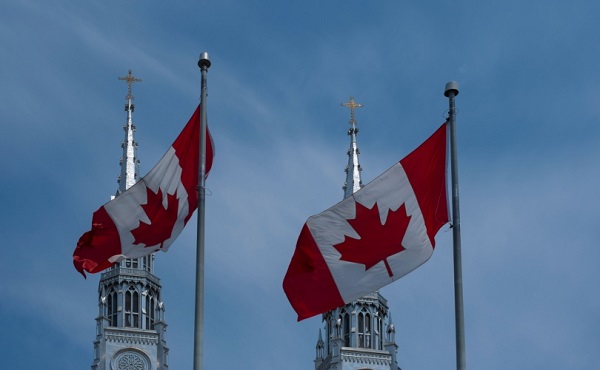Business
Instead of innovating themselves, Europeans trying to regulate US companies to death


From the Daily Caller News Foundation
By
Envy is an ugly thing — one of the seven deadly sins.
The Europeans have long been dripping with jealousy that American firms dominate the tech sector — cell phones, search engines, social media platforms, AI and robotics.
As a consequence, the U.S. economy as measured by net worth is now 50 percent larger than Europe’s and even the residents of our poorest states like West Virginia have a higher income than the average European.
One reason: The United States innovates while Europe regulates. Instead of fixing their economies in Euroland, the EU bureaucrats want to kneecap America’s tech success stories with fines and lawsuits and regulatory barbed wire fences to keep American firms from competing on a level playing field.
A case in point is the rash of expensive antitrust lawsuits against Google search engines.
Even worse is that a few years ago the European Union enacted “the Digital Markets Act” under the guise of trying to “ensure contestable and fair markets in the digital sector.”
Whenever government officials talk about promoting “fairness,” it means they are looking for expanding their own power.
Under this Act, Europe’s regulators are seeking to rein in successful technology companies like Apple through a new regulatory principle called “interoperability.”
Interoperability calls for third-party developers throughout the world to be given access to Apple’s private operating systems — iOS and iPadOS. In this framework, Apple is treated like a public utility with features that can be leveraged by other companies.
This is a sore-loser concept. Apple is a highly dynamic company that has achieved its market-leading status by developing wildly popular trailblazing products.
The European regulations, could require iPhones to offer competitor products. This makes as much sense as requiring McDonalds to offer Burger King fries with their “happy meals.”
The iPhone amenities and apps are part of a package deal that have made these devices the most popular in the world with billions of customers. This hardly sounds like monopolistic behavior. For people who don’t like Apple’s aps, there are many other cell phone products, such as Galaxy that consumers can turn to made by T-Mobile, Google, or a handful made in China.
For all the talk about Apple’s monopoly, they now control slightly less than 20% of the global cell-phone market.
Yet Europe’s bureaucrats have declared that Apple cannot charge product developers who are given access to the company’s operating systems. It is like getting to ride the train for free.
Interoperability is a dangerous concept — especially when it comes to security and privacy. Apple places a premium on maintaining the integrity of its devices and protecting its users’ data. But there is no guarantee that third parties given unfettered access to the Apple platform will have the same high standards.
That is going to leave Europe’s users of Apple products at greater risk of getting hacked. The results could be “disastrous,” points out Dirk Auer of the International Center for Law and Economics. “Users’ identity could be leaked, their money stolen, and their data could be compromised.”
Social media companies that want access to Apple’s operating systems could also gain access to I-phone users’ data and information. Apple warns that outsiders could “read on a user’s device all of their messages and emails, see every phone call they make or receive, track every app that they use, scan all of their photos, look at their files and calendar events, log all of their passwords, and more.”
Even Apple doesn’t access this data in order to protect the privacy of their users.
The danger here is that if companies that spend billions of dollars innovating to build a better mousetrap can’t own and control their own products and reap the financial rewards, innovation will be stifled — in which case everyone loses. Sharing patented information with competitors in the name of “fairness” is a socialist idea that has rusted the Eurozone economy.
If Europe wants to get back in the tech game, EU bureaucrats should focus on what made these companies so successful in the first place — and then try to create a public policy environment that will foster innovative companies that can compete and win — rather than run to the courts for protection. Punishing the winners is a good way to keep producing losers.
In the meantime, let’s hope the incoming Trump regulators at the FTC and FCC and the Justice Department defend American companies against aggressive and hostile lawsuits to hobble our made-in-American companies. In other words, put America first and don’t let Europe take a bite out of our Apple.
Stephen Moore is a co-founder of Unleash Prosperity and a co-author of the new book: “The Trump Economic Miracle.”
Business
Conservative MPs denounce Liberal plan to strip charitable status of pro-life, Christian groups

From LifeSiteNews
Conservative MPs presented a petition in Parliament defending pro-life charities and religious organizations against a Liberal proposal to strip their charitable tax status.
Conservative MPs presented a petition calling for the rejection of the Liberals’ plan to strip pro-life charities and places of worship of their charitable status.
During the September 16 session, Conservative Members of Parliament (MPs) Andrew Lawton, Jacob Mantle, and Garnett Genuis defended pro-life charities and places of worship against Liberal recommendations to remove the institutions’ charitable status for tax purposes.
“I have received from houses of worship across this country so much concern, reflected in this petition, that these recommendations are fundamentally anti-free speech and anti-religious freedom,” Lawton told Parliament. “The petitioners, and I on their behalf, advocate for the complete protection of charitable status regardless of these ideological litmus tests.”
Similarly, Mantle, a newly elected MP, added that Canadians “lament that some members opposite are so blinded by their animus towards charitable organizations that they would seek to undermine the good works that these groups do for the most vulnerable Canadians.”
Religious charities provide care and compassion to the most vulnerable in our society, but some members of the Liberal and New Democratic parties are so blinded by their animus towards religion and faith that they are actively seeking to revoke the charitable status of ALL… pic.twitter.com/O12rkw3pJ0
— Jacob Mantle (@jacobmantle) September 16, 2025
Finally, Genuis, who officially presented the petition signed by hundreds of Canadians, stressed the importance work accomplished by religious and pro-life organizations.
“(R)eligious charities in Canada provide vital services for society, including food banks, care for seniors, newcomer support, youth programs and mental health outreach, all of which is rooted in their faith tradition, and that singling out or excluding faith charities from the charitable sector based on religious belief undermines the diversity and pluralism foundational to Canadian society,” he explained.
As LifeSiteNews previously reported, before last Christmas, a proposal by the all-party Finance Committee suggested legislation that could strip pro-life pregnancy centers and religious groups of their charitable status.
The legislation would amend the Income Tax Act and Income Tax. Section 429 of the proposed legislation recommends the government “no longer provide charitable status to anti-abortion organizations.”
The bill, according to the finance department, would require “registered charities that provide services, advice, or information in respect of the prevention, preservation, or termination of pregnancy (i.e., destroying the unborn)” to disclose that they “do not provide specific services, including abortions or birth control.”
Similarly, Recommendation 430 aims to “amend the Income Tax Act to provide a definition of a charity which would remove the privileged status of ‘advancement of religion’ as a charitable purpose.”
Many Canadians have warned that the proposed legislation would wipe out thousands of Christian churches and charities across Canada.
As LifeSiteNews reported in March, the Canadian Conference of Catholic Bishops (CCCB) appealed to the Liberal government to rethink the plan to strip pro-life and religious groups of their tax charity status, stressing the vital work done by those organizations.
Business
The Real Reason Tuition Keeps Going Up at Canada’s Universities

Since 2020, steep increases to tuition fees have triggered large-scale protests by the students who pay those fees at the University of Alberta, University of Calgary, University of British Columbia and at McGill University and Concordia University in Quebec, among many other schools. (A freeze on tuition fees in Ontario since 2019 explains that province’s absence from the list.)
It’s true that tuition has been on the rise. According to Statistics Canada , between 2006-2007 and 2024-2025, the average undergraduate full-year tuition fee at a Canadian university grew from approximately $4,900 to $7,360.
But do the students really know what’s behind the increases?
University administrators looking to deflect responsibility like to blame provincial government cutbacks to post-secondary funding. Here, the evidence is unconvincing. Going back two decades, nationwide full-time equivalent (FTE) student transfer payments from provincial governments have remained essentially constant, after accounting for inflation. While government grants have remained flat, tuition fees are up.
The issue, then, is where all this extra money is going – and whether it benefits students. Last year researcher and consultant Alex Usher took a close look at the budgeting preferences of universities on a nationwide basis. He found that between 2016-2017 and 2021-2022 the spending category of “Administration” – which comprises the non-teaching, bureaucratic operations of a university – grew by 15 percent. Curiously enough “Instruction,” the component of a university that most people would consider to be its core function, was among the slowest growing categories, at a mere 3 percent. This top-heavy tendency for universities is widely known as “administrative bloat”.
Administrative bloat has been a problem at Canadian universities for decades and the topic of much debate on campus. In 2001, for example, the average top-tier university in Canada spent $44 million (in 2019 dollars) on central administration. By 2019 this had more than doubled to $93 million, supporting Usher’s shorter-term observations. Usher calculated that the size of the non-academic cohort at universities has increased by between 85 percent and 170 percent over the past 20 years.
While some level of administration is obviously necessary to operate any post-secondary institution, the current scale and role of campus bureaucracies is fundamentally different from the experience of past decades. The ranks of university administration used to be filled largely with tenured professors who would return to teaching after a few terms of service. Today, the administrative ranks are largely comprised of a professional cadre of bureaucrats. (They are higher paid too; teaching faculty are currently paid about 10 percent less than non-academic personnel.)
This ever-larger administrative state is increasingly displacing the university’s core academic function. As law professor Todd Zywicki notes, “Even as the army of bureaucrats has grown like kudzu over traditional ivy walls, full-time faculty are increasingly being displaced by adjunct professors and other part-time professors who are taking on a greater share of teaching responsibilities than in the past.” While Zywicki is writing about the American experience, his observations hold equally well for Canada.
So while tuition fees keep going up, this doesn’t necessarily benefit the students paying those higher fees. American research shows spending on administration and student fees are not correlated with higher graduation rates. Canada’s huge multi-decade run-up in administrative expenditures is at best doing nothing and at worst harming our universities’ performance and reputations. Of Canada’s 15 leading research universities, 13 have fallen in the global Quality School rankings since 2010. It seems a troubling trend.
And no discussion of administrative bloat today can ignore the elephant in the corner: diversity, equity and inclusion (DEI). Writing in the National Post, Peter MacKinnon, past president of the University of Saskatchewan, draws a straight line from administrative bloat to the current infestation of DEI policies on Canadian campuses.
The same thing is going on at universities across Canada that have permanent DEI offices and bureaucracies, including at UBC, the University of Calgary, University of Waterloo, Western University, Dalhousie University and Thompson Rivers University. As a C2C Journal article explains, DEI offices and programs offer no meaningful benefit to student success or the broader university community. Rather, they damage a school’s reputation by shifting focus away from credible scientific pursuits to identity politics and victimology.
With universities apparently unable to restrain the growth of their administrative Leviathan, there may be little alternative but to impose discipline from the outside. This should begin with greater transparency.
Former university administrator William Doswell Smith highlights a “Golden Rule” for universities and other non-profit institutions: that fixed costs (such as central administration) must never be allowed to rise faster than variable costs (those related to the student population). As an example of what can happen when Smith’s Golden Rule is ignored, consider the fate of Laurentian University in Sudbury, Ontario.
In early 2021 Laurentian announced it was seeking bankruptcy protection under the Companies’ Creditors Arrangement Act, under which a court-appointed manager directs the operations of the delinquent organization. Laurentian then eliminated 76 academic programs, terminated 195 staff and faculty, and ended its relationships with three nearby schools.
Ontario’s Auditor-General Bonnie Lysak found that the primary cause of the school’s financial crisis were ill-considered capital investments. The administrators’ big dreams essentially bankrupted the university.
The lesson is clear: if universities refuse to correct the out-of-control growth of their administrations, then fiscal discipline will eventually be forced upon them. A reckoning is coming for these bloated, profligate schools. The solution to higher tuition is not increasing funding. It’s fewer administrators.
The original, full-length version of this article was recently published in C2C Journal.
Jonathan Barazzutti is an economics student at the University of Calgary. He was the winner of the 2nd Annual Patricia Trottier and Gwyn Morgan Student Essay Contest co-sponsored by C2C Journal.
-

 Alberta1 day ago
Alberta1 day agoSylvan Lake high school football coach fired for criticizing gender ideology sends legal letter to school board
-

 Energy1 day ago
Energy1 day agoA Breathtaking About-Face From The IEA On Oil Investments
-

 International8 hours ago
International8 hours agoTrump sues New York Times for $15 billion over ‘malicious, defamatory’ election coverage
-

 Alberta2 days ago
Alberta2 days agoParents group blasts Alberta government for weakening sexually explicit school book ban
-

 COVID-191 day ago
COVID-191 day agoFreedom Convoy leader slams Canadian gov’t agency for praising its treatment of protesters
-

 Frontier Centre for Public Policy2 days ago
Frontier Centre for Public Policy2 days agoBloodvein Blockade Puts Public Land Rights At Risk
-

 Business2 days ago
Business2 days agoOttawa’s so-called ‘Clean Fuel Standards’ cause more harm than good
-

 International2 days ago
International2 days agoFrance records more deaths than births for the first time in 80 years



